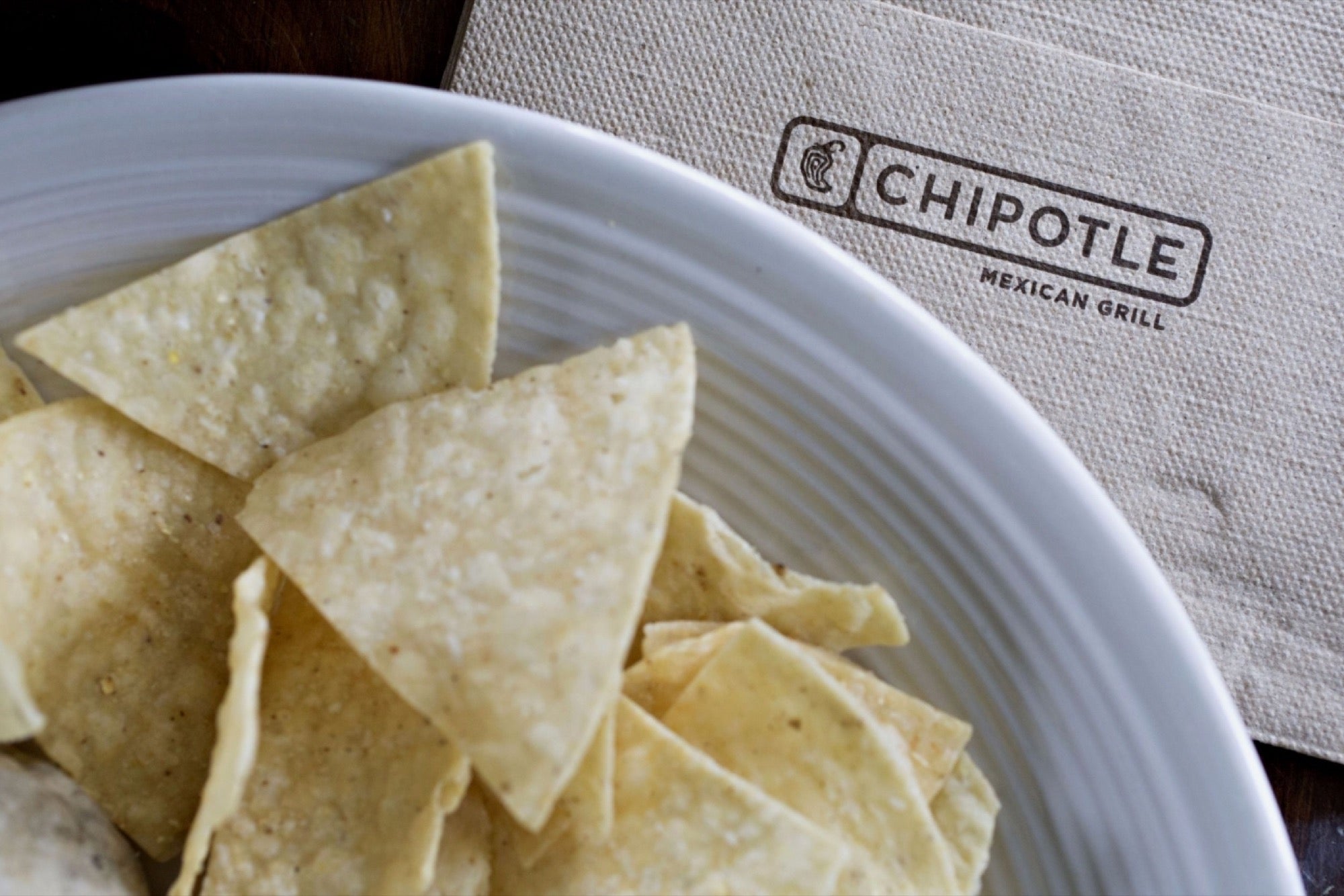Chipotle's Loyalty Program Is Broken and Here's WhyCustomer loyalty programs for brick-and-mortar businesses offer a great quid pro quo: crucial customer information.
Opinions expressed by Entrepreneur contributors are their own.

Chipotle faces the challenge of reengaging formerly loyal customers in the wake of the food safety problems it experienced last year. While itsreplacementof certain ingredients and the deep cleaning it conducted of its restaurants were necessary first steps, the company is now experiencing a secondary symptom of the crisis:steep revenue declines.
While brands like Starbucks and Marriott have embraced loyalty programs and demonstrated clear ROI, others -- including Chipotle -- have pointedly not implemented such programs.
Yet it's been shown that even a5 percentincrease in customer retention can double long-term profit. This finding should scream "opportunity" for any company, especially one in dire need of winning back customers. Data and personalization, after all, have been key to growth in online businesses.
Loyalty represents the same kind of opportunity for brick-and-mortar businesses, but stories of poorly executed loyalty programs are legion. Many companies are wary of discounts, which are often viewed as the cornerstone of a rewards program. As a result, some merchants such as Chipotle have spent their marketing budget on other brand building initiatives, like mobile games and festivals.
Related:Chipotle Is Giving Away Free Burritos to Any Customer Who Plays This Online Game
Without customer data, though -- the quid pro quo in the rewards model -- merchants miss out on opportunities to increase visit frequency (the primary benefit of the well-regarded Starbucks program) through personalized communication. And those merchants are also at severe risk when customers leave.
For Chipotle, that "bed was made" when the company decidednotto invest in loyalty -- and it's now paying the price. In February alone,5.3 millionpeople downloaded Chipotle's mobile coupon for a free entrée. Considering the campaign successful, Chipotle mailed a similar coupon to 21 million homes a month later
But many of those mailings were addressed to the glaringly impersonal "Resident." And, according to some analyses,Chipotle may have been discounting as much as 20 percent of its transactions in Q1-- a particularly painful margin-hit on top of an already steep revenue decline.
Handing out coupons may seem like a simple rewards program, but it's actually closer to Groupon's model. Loyalty programs specifically identify a company's best customers, to target them with enhanced experiences designed to increase repeat visits and drive incremental spend.
Most commonly, these programs gather customer data, to identify VIPs in exchange for rewards or special treatment. Doling out free burritos, however, won't build long-term brand loyalty; it will increase short-term costs.Coupons used in this form are far from personal; instead, they scream "we're desperate" through a megaphone.
(Editor's note: Chipolte did not respond to requests to comment.)
Related:Chipotle Just Put an Official Price on Its Most Famous Secret Menu Item
Even if Chipotle's discounts had been targeted to specific customers, such coupons come with a second downside upon redemption: They don't provide insight into who is redeeming them or who came back again.
There's no way to gather and track the data needed to identify consumers and actually build (or repair) long-term relationships. Discounts, then, might cause a spike in Chipotle's near-term foot traffic, but how many customers are the die-hard fans from before the outbreaks?
Considering thatit's seven times more expensive to acquire a new customer than to encourage an incremental visit from an existing one, Chipotle is likely spending more money than it needs to win back customers.
Perhaps most crucially, Chipotle's strategy doesn't target all-important VIPs -- particularly lapsed ones. In the restaurant industry, approximately67 percent of revenuecomes from the top one-fourth of customers. Those are the individuals Chipotleshouldtarget, not the whole country.
At the end of the day, Chipotle's program is ineffective (impersonal), difficult to measure (no tracking post redemption) and too expensive (blanket discounting).
On its most recent earnings call, the burrito giant finally announced that a loyalty program was coming soon. Hopefully, that will be very soon -- because the time to do it was before the company gave out millions in anonymous, generic and untrackable discounts.
Without a program already in place, Chipotle was in a bind because, historically, loyalty programs are incredibly time-intensive to set up and launch. That too is changing, with the next generation of providers; and that change may represent a breath of fresh air for brands that in the future find themselves in crisis management, without any customer data.
Related:Chipotle Cooks Up New, Stricter Food Safety Rules Amid E. Coli Fiasco
In those circumstances, loyalty can remind us of the age-old adage, "Better to be safe than sorry." Because operating blind is a risk no business should be taking any longer.












